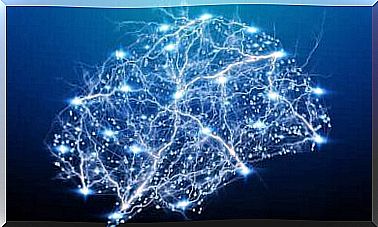Fasting: A Spiritual Practice

Fasting is a practice dating back to ancient times from almost all cultures. Initially, it was done for religious reasons; people fasted collectively during certain periods to honor God or to receive some form of reward. Today, this spirit is maintained in practices such as Catholicism or Muslim Ramadan.
The truth is that over time it has been discovered that by fasting you can give both body and mind great benefits. It is seen as an exercise that detoxifies the body and contributes to the healing of various diseases. In the same way, fixed mind and spirit benefit because it demands will and renunciation.
Fasting is an act of voluntary rigor. For this reason, it strengthens the mind and contributes to an increase in concentration. Somehow it frees the mind so that it can focus on knowledge and self-insight. It is a test of the will which, however, should never be taken so far as to offend the organism or the mind.
Despite the fact that society attaches great importance to consumption, the truth is that it is much more difficult to give up things. Some philosophers insist that the more a person has, the less free he is. His mind and heart must deal with these possessions, material and spiritual, and instead of being in His service, it is He who is bound to them.

It is said that “rich is not he who has more, but he who needs least”. This is true, so much so that needs give us perspective on scarcity, on vulnerability. And it is clear that much of what we need is in line with a compulsion from the market and society rather than real need. But we forget or ignore this all too often, which is why so many of us get caught up in “chronic need.”
Fasting reminds us that we have the power to abstain, even something as fundamental as food. Voluntarily depriving ourselves of food allows us to gain a new perspective. It is an exercise that forces us to fix our gaze on ourselves, to more clearly perceive the signals the body sends and to identify the emotions that accompany us. People who fast assure that this perception and sensitivity increases during periods of resignation.
The result of such an exercise, when performed correctly, is very beneficial to the emotional world. Higher self-control is experienced, and this increases self-confidence and self-esteem. There is a sense of well-being while tolerance for frustration develops. People who fast are usually quieter, self-controlled and self-aware.
One of the researchers who has studied the benefits of fasting in depth is Mark Mattson – Head of the UK’s Laboratory of Neuroscience. His studies have made it possible to establish that fasting is a healthy exercise that benefits the care of the brain.

For Mattson , regular exercise prolongs fixed life expectancy and reduces the rate of neuronal deterioration, which occurs in diseases such as Alzheimer’s and Parkinson’s. It also reduces the oxidative processes in all organs of the body, and delays the onset of chronic diseases associated with aging.
But that’s not all. Fasting also increases cognitive abilities and promotes the ability of neurons to establish and maintain connections between themselves. This is reflected in an increase in the ability to learn and in the growth of memory. Mattson says that fasting offers benefits similar to those of physical and mental exercise, and that it is recommended to exercise it once or twice a week.
Researchers at the Heart Institute of Intermountain Medical Center in Utah, USA, have also indicated that fasting reduces the risk of heart disease and causes positive changes in cholesterol levels. In this way, it is clear that fasting benefits you physically and emotionally. However, you should not forget that this exercise should be performed under medical supervision, especially if you suffer from any disease.










